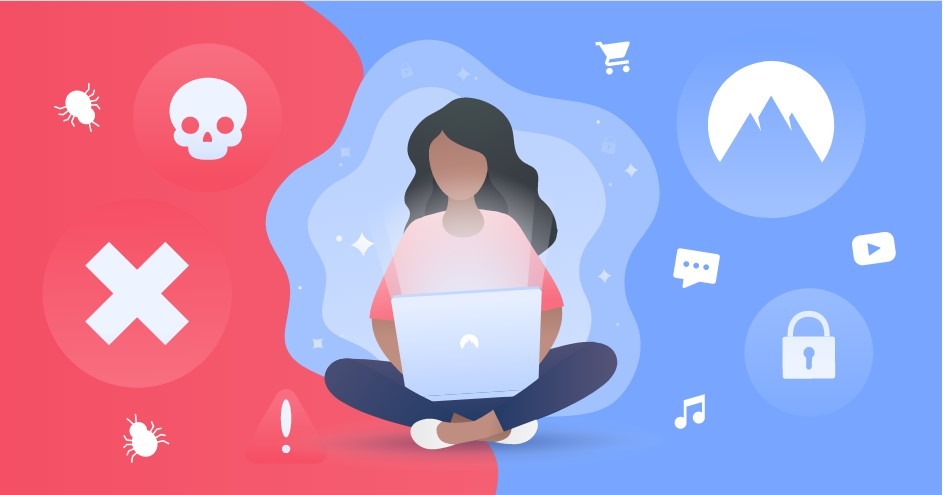With the growing awareness of online privacy, many individuals are turning to Virtual Private Networks (VPNs) to protect their location and personal information. I’ve been using a VPN for several years, and it has become an essential tool in my digital life. Here’s how a VPN helps me maintain my privacy and some strategies I employ for maximum effectiveness.

Understanding the Basics of VPN
A VPN creates a secure connection between my device and the internet. It routes my internet traffic through a server owned by the VPN provider, masking my IP address and encrypting my data. This not only keeps my online activities hidden from prying eyes but also prevents websites from tracking my real location. By using a VPN, I can access geo-restricted content and enhance my security on public Wi-Fi networks.
Choosing the Right VPN Service
Selecting the appropriate VPN service is crucial for effective privacy. I researched various options before settling on a provider. Here are the key factors I considered:
- No-Logs Policy: I ensured the service has a strict no-logs policy, meaning they do not track or store my browsing data.
- Encryption Standards: Strong encryption protocols, such as OpenVPN and WireGuard, are vital for safeguarding my data.
- Server Locations: A diverse range of server locations allows me to bypass geographical restrictions more effectively.
- Speed: I opted for a VPN that offers high-speed connections, ensuring that my browsing experience remains seamless.
- User-Friendly Interface: A simple and intuitive interface makes it easier for me to connect quickly.
How I Use My VPN
When I access the internet, the first thing I do is connect to my VPN. This initial step significantly reduces the risk of my data being intercepted. I always select a server in the country of my choice based on my needs—be it for accessing content that’s region-specific or simply for added security.
Importance of Location Privacy
In my use case, maintaining location privacy serves several purposes:
- Security: Cybercriminals often utilize my IP address to gain access to my personal information. By masking my location, I enhance my security.
- Avoiding Tracking: Advertisers and websites use my IP address to track my habits online. Using a VPN enables me to browse without being targeted based on my activities.
- Access to Global Content: Some websites restrict content based on geographic location. With my VPN, I can easily bypass these restrictions and enjoy a more open internet.
✅ Current deal: 🔥 Get NordVPN with up to 75% OFF! 🔥
Additional Security Practices
While a VPN significantly enhances my privacy, I complement it with other security practices. Here are some steps I commonly take:
- Use HTTPS Websites: I check for HTTPS in the URL to ensure that the website uses encryption.
- Enable Two-Factor Authentication: For added security, I enable two-factor authentication on my accounts.
- Regularly Update Software: Keeping my device and applications updated helps protect against vulnerabilities.
- Be Cautious with Public Wi-Fi: When using public Wi-Fi, I always ensure my VPN is active to safeguard my information.
- Avoid Suspicious Sites: I refrain from visiting websites that seem untrustworthy or unfamiliar, as these can often compromise my security.
✅ Current deal: 🔥 Get NordVPN with up to 75% OFF! 🔥
Tips for Maintaining Privacy with a VPN
Using a VPN effectively involves more than just turning it on. Here are several tips to ensure I maintain my privacy:
- Choose a Reliable Provider: Research and select a reputable VPN service. I recommend reading reviews and checking ratings.
- Select the Right Server: Choose a VPN server that is closest to your physical location for better speed, or one that suits your intended purpose (like a streaming server).
- Regularly Clear Browsing History: I make it a point to clear my browsing history and cookies periodically, as this adds an extra layer of privacy.
- Limit Permissions for Apps: I review and restrict app permissions on my devices, particularly for apps that do not need access to my location.
- Use Strong Passwords: I create complex passwords for my accounts to prevent unauthorized access.
Conclusion
Employing a VPN has been one of the most effective steps I’ve taken in securing my privacy online. By masking my location and encrypting my data, I can navigate the internet with confidence. Alongside other security practices, a VPN has become an integral part of my cybersecurity strategy.
For anyone looking to enhance their online privacy, I encourage you to consider these tips and incorporate a VPN into your daily routine. Protecting personal information is not just the responsibility of the service providers but also of individuals taking proactive steps to safeguard their data.
Affiliate Disclosure: By clicking on our links, we may earn commissions at no additional cost to you.